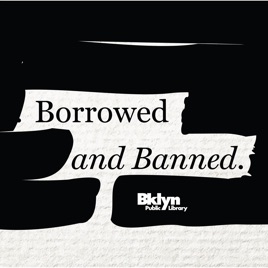
Advertise on podcast: Merriam-Webster's Word of the Day
Rating
4.4 from
Country
This podcast has
10 episodes
Language
Publisher
Explicit
No
Date created
2006/07/07
Average duration
2 min.
Release period
1 days
Description
Build your vocabulary with Merriam-Webster's Word of the Day! Each day a Merriam-Webster editor offers insight into a fascinating new word -- explaining its meaning, current use, and little-known details about its origin.
Social media
Check Merriam-Webster's Word of the Day social media presence
Podcast episodes
Check latest episodes from Merriam-Webster's Word of the Day podcast
retinue
2024/02/26
Merriam-Webster's Word of the Day for February 26, 2024 is: retinue \RET-uh-noo\ noun
A retinue is a group of helpers, supporters, or followers.
// The venue relies on a retinue of workers to carry out large events.
[See the entry >](https://www.merriam-webster.com/dictionary/retinue)
Examples:
"Royal Island, a swanky Caribbean oasis in The Bahamas, awaits its next king or queen and their lucky retinue of family and friends." — Abby Montanez, Robb Report, 11 Jan. 2024
Did you know?
Retinue comes via Middle English from the Anglo-French verb retenir, meaning "to [retain](https://www.merriam-webster.com/dictionary/retain) or keep in one's pay or service." Another retenir descendant is [retainer](https://www.merriam-webster.com/dictionary/retainer), which has among its meanings "one who serves a person of high position or rank." In the 14th century, such retainers typically served a noble or royal of some kind, and retinue referred to a collection of retainers—that is, the noble's servants and companions. Nowadays, the word retinue is often used with a bit of exaggeration to refer to the assistants, guards, publicists, and other people who accompany a high-profile individual in public. You might also hear such a collection of folks called a [suite](https://www.merriam-webster.com/dictionary/suite) or [entourage](https://www.merriam-webster.com/dictionary/entourage), two other words that come from French.
more
caterwaul
2024/02/25
Merriam-Webster's Word of the Day for February 25, 2024 is: caterwaul \KAT-er-wawl\ verb
To caterwaul is to make a very loud and unpleasant sound. Caterwaul can also mean “to protest or complain noisily.”
// The woods were quiet until the sound of a chainsaw caterwauling in the distance broke the calm.
// They continue to caterwaul about having to take the blame.
[See the entry >](https://www.merriam-webster.com/dictionary/caterwaul)
Examples:
“The young woman in her 20s seated next to me laughed and caterwauled as other audience members participated in the traditional ‘Rocky Horror’ routine, shouting catchphrases and sarcastic commentary back at the actors.” — Peter Marks, The Washington Post, 5 Oct. 2023
Did you know?
Though the most familiar sense of caterwaul, “to protest or complain loudly,” is not specific to our feline friends, we still think it’s the [cat’s meow](https://bit.ly/3U1bTIM), and not without good reason. Caterwaul first appeared in English in the 1300s as a verb applied to the wailing sounds made by cats when on the prowl for a mate. The word comes from the Middle English word caterwawen (also caterwrawen), but its origins beyond that are obscure. The cater part is thought to be connected to the cat, but scholars disagree about whether it traces to the Middle Dutch word cāter, meaning “tomcat,” or if it is merely cat with an “-er” added. Wawen is probably imitative in origin, approximating one of the domestic kitty’s many vocalizations. By the 1600s caterwaul was also being used for similar non-cat noises and later as a noun referring to noisy people or things.
more
voracious
2024/02/24
Merriam-Webster's Word of the Day for February 24, 2024 is: voracious \vuh-RAY-shus\ adjective
Voracious describes someone who has a huge appetite. It can also be used figuratively to mean "excessively eager," as in "a voracious reader."
// It seemed like the voracious kitten was eating her weight in food every day.
// She has her voracious appetite for knowledge to thank for graduating at the top of her class.
[See the entry >](https://www.merriam-webster.com/dictionary/voracious)
Examples:
"Cane toads are unwelcome in Australia because the bulbous amphibian is a voracious eater that when stressed releases a toxin strong enough to kill lizards, snakes, crocodiles—almost anything that dares to attack it. In a suburban setting, that includes dogs and cats." — Hilary Whiteman, CNN, 19 Jan. 2024
Did you know?
Voracious is one of several English words that come from the Latin verb vorare, which means "to eat greedily" or "to devour." Vorare is also an ancestor of [devour](https://www.merriam-webster.com/dictionary/devour) and of the -ivorous words that describe the diets of various creatures. These include [carnivorous](https://www.merriam-webster.com/dictionary/carnivorous) ("meat-eating"), [herbivorous](https://www.merriam-webster.com/dictionary/herbivorous) ("plant-eating"), [omnivorous](https://www.merriam-webster.com/dictionary/omnivorous) ("feeding on both animals and plants"), [frugivorous](https://www.merriam-webster.com/dictionary/frugivorous) ("fruit-eating"), [graminivorous](https://www.merriam-webster.com/dictionary/graminivorous) ("feeding on grass"), and [piscivorous](https://www.merriam-webster.com/dictionary/piscivorous) ("fish-eating").
more
opprobrium
2024/02/23
Merriam-Webster's Word of the Day for February 23, 2024 is: opprobrium \uh-PROH-bree-um\ noun
Opprobrium refers to very strong disapproval or criticism of a person or thing especially by a large number of people.
// They're going ahead with the plan despite public opprobrium.
[See the entry >](https://www.merriam-webster.com/dictionary/opprobrium)
Examples:
"Caught up in a whirlwind of public opprobrium, ... the brand's executives seemed unsure how to react, before finally offering up statements of public apologies and self-recrimination." — Vanessa Friedman, The New York Times, 1 June 2023
Did you know?
Unfamiliar with opprobrium? [Tsk](https://www.merriam-webster.com/dictionary/tsk), tsk, tsk. Just kidding—unfamiliarity with a word is hardly grounds for, well, opprobrium. We're here to learn! Besides, opprobrium is quite formal and has few close relations in English. It comes from the Latin verb opprobrāre, which means "to reproach." That verb, in turn, comes from the noun probrum, meaning "a disgraceful act" or "reproach." The adjective form of opprobrium is [opprobrious](https://www.merriam-webster.com/dictionary/opprobrious), which in English means "deserving of scorn" or "expressing contempt." One might commit an "opprobrious crime" or be berated with "opprobrious language," for example.
more
haggard
2024/02/22
Merriam-Webster's Word of the Day for February 22, 2024 is: haggard \HAG-urd\ adjective
Someone described as haggard appears tired or thin especially as if because of hunger, worry, or pain. Haggard can also describe someone who looks wild or otherwise disheveled.
// After a disastrous rafting trip, Robin emerged from the woods looking haggard but otherwise unscathed.
[See the entry >](https://www.merriam-webster.com/dictionary/haggard)
Examples:
“All three leads are excellent, but it’s especially worth noting the complexity of what DiCaprio pulls off. Initially, Ernest seems a fairly standard character type, the cocky, dim-bulb guy of disposable moral fiber, easily influenced by someone much smarter. But he becomes more interesting as the anguish caused by his love for Mollie eats away at him, with the actor looking discernibly more haggard as Hale’s plot advances and he's unable to [extricate](https://www.merriam-webster.com/dictionary/extricate) himself from it.” — David Rooney, The Hollywood Reporter, 20 May 2023
Did you know?
Haggard has its origins in [falconry](https://www.merriam-webster.com/dictionary/falconry), the ancient sport of hunting with a trained bird of prey. The birds used in falconry were not bred in captivity until very recently; traditionally, falconers trained wild birds that were either taken from the nest when quite young or trapped as adults. A bird trapped as an adult is termed a haggard, from the synonymous Middle French word hagard. Such a bird being notoriously wild and difficult to train, haggard was easily extended to apply to a “wild” and [intractable](https://www.merriam-webster.com/dictionary/intractable) person. Eventually, the word came to express the way the human face looks when a person is exhausted, anxious, or terrified. Today, the most common meaning of haggard is “gaunt” or “worn.”
more
lampoon
2024/02/21
Merriam-Webster's Word of the Day for February 21, 2024 is: lampoon \lam-POON\ verb
To lampoon someone or something is to ridicule that person or thing, especially through the use of harsh satire.
// The exhibit chronicles the long history of lampooning public figures in cartoons.
[See the entry >](https://www.merriam-webster.com/dictionary/lampoon)
Examples:
"'An exciting element of this to me was the opportunity to completely lampoon entitled Hollywood celebrities. Those celebrities out there who think that acting is the most important vocation in the world and that there's not an interesting conversation unless it’s about one of their future projects,' [Jury Duty actor, James] Marsden said with a laugh and without naming names." — Rosy Cordero, Deadline, 20 Apr. 2023
Did you know?
Lampoon can be a noun or a verb. The noun [lampoon](https://www.merriam-webster.com/dictionary/lampoon) (meaning "satire" or, specifically, "a harsh satire usually directed against an individual") was first used in English in the 17th century and may be familiar from the names of humor publications such as The Harvard Lampoon and its now-defunct spinoff [National Lampoon](https://www.britannica.com/topic/National-Lampoon-magazine). Both the noun and the verb come from the French word lampon, which likely originated from lampons, a form of the verb lamper, meaning "to drink to the bottom." So what is the connection? Lampons! (meaning "Let us guzzle!"—that is, drink greedily) was a frequent refrain in 17th-century French satirical poems.
more
buttress
2024/02/20
Merriam-Webster's Word of the Day for February 20, 2024 is: buttress \BUTT-russ\ noun
A buttress is a structure built against a wall in order to support or strengthen it. More broadly, buttress may refer to anything that supports or strengthens. Buttress may also refer to something that resembles a buttress, such as a projecting part of a mountain or hill, a horny protuberance on a horse's hoof at the heel, or the broadened base of a tree trunk or a thickened vertical part of it.
// After the wall collapsed, the construction company agreed to rebuild it with a buttress.
[See the entry >](https://www.merriam-webster.com/dictionary/buttress)
Examples:
"Between November 2018 and May 2021, the glacier retreated eight kilometres as the [ice shelf](https://bit.ly/48ykM0K) at the end of the glacier ... disappeared. The ice shelf would have acted as a buttress, slowing the movement of the glacier towards the sea." — The University of Leeds (environment.leeds.ac.uk), 29 Nov. 2023
Did you know?
The word buttress first budded in the world of architecture during the 14th century, when it was used to describe an exterior support that projects from a wall to resist the sideways force, called [thrust](https://www.merriam-webster.com/dictionary/thrust), created by the load on an arch or roof. The word ultimately comes from the Anglo-French verb buter, meaning "to thrust." Buter is also the source of our verb [butt](https://www.merriam-webster.com/dictionary/butt), meaning "to thrust, push, or strike with the head or horns." Buttress developed figurative use relatively soon after its adoption, being applied to anything that supports or strengthens something else. No buts about it: the world would not be the same without buttresses.
more
prestigious
2024/02/19
Merriam-Webster's Word of the Day for February 19, 2024 is: prestigious \preh-STIH-juss\ adjective
Something described as prestigious has the respect and admiration that someone or something gets for being successful or important.
// Chelsea’s mom often bragged about her daughter’s job at the prestigious company.
[See the entry >](https://www.merriam-webster.com/dictionary/prestigious)
Examples:
“Emma Stone has amassed a trove of prestigious Hollywood awards—an Oscar, two Golden Globes and three SAG Awards among them—but the accolade that eludes her is the one she covets most: ‘Jeopardy!’ contestant.” — Malia Mendez, The Los Angeles Times, 12 Jan. 2024
Did you know?
You might expect, based on how adjectives are often formed in English, that today’s word is an extension of the noun [prestige](https://www.merriam-webster.com/dictionary/prestige). However, although both words share the same Latin root, they entered English by different routes and at different times. Moreover, both adjective and noun once had more to do with trickery than respect when they were first used. Prestigious came directly from the Latin adjective praestigiosis, meaning “full of tricks” or “deceitful,” and had a similar meaning upon entering English in the mid-16th century. Praestigiosis in turn came from the plural noun praestigiae, meaning “conjurer’s tricks.” This noun also gave English the word prestige, though it first passed through French and arrived a century after prestigious. Though it wasn’t first on the block, prestige influenced prestigious in a different way, by eventually developing an extended sense of “standing or esteem.” That change spurred a similar development in prestigious, which now means simply “illustrious or esteemed.”
more
fathom
2024/02/18
Merriam-Webster's Word of the Day for February 18, 2024 is: fathom \FA-thum\ verb
To fathom something is to understand the reason for its existence or occurrence.
// Even those close to him can't always fathom why he repeatedly risks his life to climb the world’s tallest mountains.
[See the entry >](https://www.merriam-webster.com/dictionary/fathom)
Examples:
"[Oppenheimer](https://www.britannica.com/topic/Oppenheimer-film) provides an opportunity to revisit this charismatic, contradictory man and reconsider how previous attempts to tell his story have succeeded—and failed—at fathoming one of the 20th century’s [most fascinating public figures](https://www.britannica.com/biography/J-Robert-Oppenheimer)." — Andy Kifer, Smithsonian Magazine, 18 July 2023
Did you know?
Fathom comes from the Old English word fæthm, meaning "outstretched arms." The noun fathom, which now commonly refers to a measure (especially of depth) of six feet, was originally used for the distance, fingertip to fingertip, created by stretching one's arms straight out from the sides of the body. In one of its earliest uses, the verb fathom was a synonym of our modern [embrace](https://www.merriam-webster.com/dictionary/embrace): to fathom someone was to encircle the person with your arms. By the 1600s fathom had taken to the seas, with the verb being used to mean "to measure by a [sounding line](https://bit.ly/47uZTT1)." At the same time, the verb also developed senses synonymous with [probe](https://www.merriam-webster.com/dictionary/probe) and [investigate](https://www.merriam-webster.com/dictionary/investigate), and it is now frequently used to refer to the act of getting to the bottom of something, figuratively speaking.
more
rapport
2024/02/17
Merriam-Webster's Word of the Day for February 17, 2024 is: rapport \ra-POR\ noun
When you have a rapport with someone, your relationship is characterized by agreement, mutual understanding, or [empathy](https://www.merriam-webster.com/dictionary/empathy) that makes communication possible or easy.
// Once our daughter had developed a rapport with her piano teacher, she began to show some real enthusiasm for learning and practicing the piano.
[See the entry >](https://www.merriam-webster.com/dictionary/rapport)
Examples:
"No one ever equaled the [Smothers] brothers' unique rapport, blending folk music and natural conversations with sibling rivalry and comical bickering." — Marc Freeman, The Hollywood Reporter, 29 Dec. 2023
Did you know?
The word rapport bears a resemblance to a more common English word, [report](https://www.merriam-webster.com/dictionary/report), which is no coincidence: both words come ultimately from the Latin verb portare, meaning "to carry," and both traveled through French words meaning "to bring back" on their way to English. Report has been in use since the 14th century, when it entered Middle English by way of Anglo-French. Rapport was first used in the mid-15th century as a synonym of report in its "account or statement" meaning, but that meaning had become obsolete by the mid-19th century. It wasn't until the early 20th century that English speakers borrowed rapport back from French in the meaning of "a friendly, harmonious relationship." We're happy to report that rapport has since flourished, and we trust this friendly word will stick around a while.
more
Podcast reviews
Read Merriam-Webster's Word of the Day podcast reviews
kavajamorokamy
2022/09/12
.
Such a great idea for a podcast!
And curative way to learn new words
baziyare
2023/07/31
Abdiaziz
Edifying and entertaining podcast. Love it!
Sjhshjcg
2023/06/23
Great idea
This is great, everything about it👍
yyyizzzh
2023/06/07
Small suggestion
Great program. The music at the beginning and the end is a bit too loud though. Would be perfect if the volume could be better adjusted.
JohnBeau76
2023/05/15
Awesome!
Love these! Keep them coming!
Chesterossa
2023/03/25
Dig it
One of my absolute favorites to start the day with! I just wish someone would work on the transition audio between the intro/outro and the narration. ...
more
incognito82
2022/12/12
Podcast has serious issues that can’t be fixed
Recently played episodes will not go hidden and the next episode won’t automatically play. Setting does nothing for this podcast. I am so annoyed that...
more
MayB44
2022/06/11
Too Fast!
I love this podcast but would appreciate it much more if I could slow it down a bit, not the 75% option on the Apple App. My audible app lets me slow ...
more
Bad Wolf💕❤️💕
2022/08/07
CRICKET GREEN WAS HERE 🐓
HEHE STINK!!!!
Middle-aged White Lady
2022/05/10
Yes, and . . .
I’ve been a loyal listener for a number of years. This was my first podcast each day. I noticed a change in the writing and content a number of months...
more
Podcast sponsorship advertising
Start advertising on Merriam-Webster's Word of the Day & sponsor relevant audience podcasts
You may also like these books Podcasts

4.7
160
89
Borrowed
Brooklyn Public Library

4.7
215
366
Poured Over
Barnes & Noble

4.6
5406
175
Celebrity Memoir Book Club
Celebrity Memoir Book Club

4.5
153
100
Reading Through Life
Sarah & Mia

4.4
60
15
Meditations by Marcus Aurelius
Loyal Books

4.6
1160
796
All the Books!
Book Riot

4.7
728
378
Close Reads Podcast
Goldberry Studios

4.8
528
173
Kowabana: 'True' Japanese scary stories from around the internet
Tara A. Devlin

4.7
186
79
Pomcast! A knitting podcast from Pom Pom Publishing
Pom Pom Publishing

4.9
1167
532
Heaving Bosoms
Heaving Bosoms Productions




